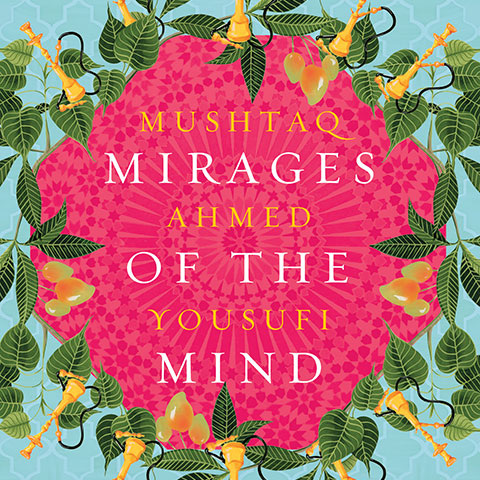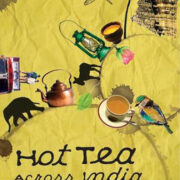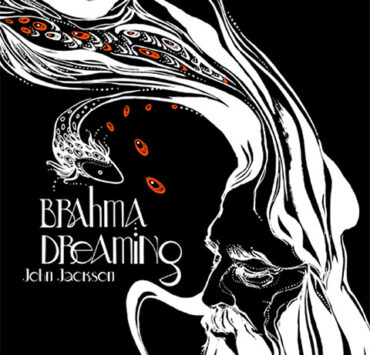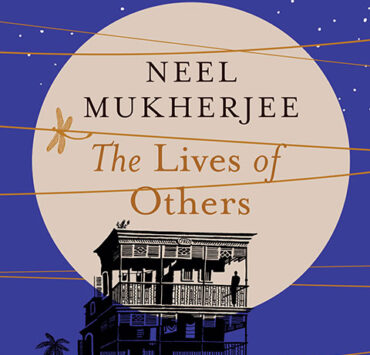“Sometimes words are dressed up in angarkha gowns, sometimes in floor-length cloaks, sometimes in scholarly turbans, sometimes in dinner jackets and sometimes in fool’s caps. Sometimes words wear anklets, and sometimes they wear fetters. And sometimes they are like trained monkeys that dance on a showman’s command.”
In his novel Mirages of the Mind, words leap triumphantly for Mushtaq Ahmed Yousufi. The reader is taken across a journey that traverses not just space and time, but also lives: the author’s, the characters’, and one’s own.
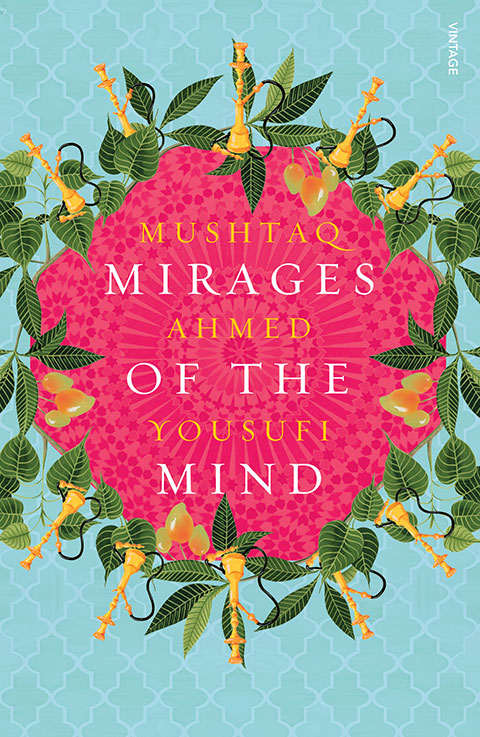
Mushtaq Ahmed Yousufi’s Mirages of the Mind
The novel pays little heed to classical western norms of narrative structures, characterisation, and plotting concerns. Instead, it deals with the life of Basharat Ali Farooq, following his migration from Kanpur to Karachi, in the form of a vagrant narrative. The book delves patiently, through Farooq’s tale, into the lives of those who lived before and after the partition of India and Pakistan. Lives are recounted, recreated with love, but never with an unrelenting, exacting accuracy. Instead, one notices a warmth that is only possible when allowances are made not just for remembering, but also forgetting.
For instance, in the first section of the book (The Mansion), the tale of Qibla—Basharat Ali Farooq’s father-in-law—is recounted. Qibla, a fiery, proud, and unhesitatingly self-assured man, when forced to leave his home, finds himself in a city that he longer knows, among people who no longer have any room for his feudal inflexibility. Armed with his faltering memories and blurred photographs of his mansion, he repeatedly reminds those around that “We left this to come here.” Even though the photographs blur with age and details are forgotten, the sheer act of leaving and the nostalgia that prevails gives him the ability to recreate the stories of his former life for us. Balconies, arcs, and octagonal goldfish ponds are remembered—or imagined, for the most part—but the story that emerges is real.
Admittedly, the book—which has been translated from its original Aab-e-gum by Matt Reeck and Aftab Ahmed—loses much in translation. What is not lost, however, is the overpowering sense of nostalgia that erupted in the subcontinent after the partition. This nostalgia is ultimately what binds an otherwise deliberately scattered narrative together.
“There wasn’t anything particularly wrong with his present, except that, for an old man, the present has the sizable shortcomings of not being the past.”
As the novel recounts tales of countless individuals, spanning the entire breadth of the Indian subcontinent, over a period of years that the book never attempts to quantify, this powerful sense of nostalgia prevails. Like a shadow that looms over the book, it consumes the characters within its narrative realm.
The introduction to Mirages of the Mind very aptly describes it as ‘encyclopaedic’. In many ways, the novel not only documents a fragmented country during a period when lives were being mercilessly shattered, it also captures this sentiment in its own mirage-like, fantastical and scattered narrative, wherein the author recalls a generation that suffered from “all sorts of unrequited passion”.
In his afterword, Yousufi writes, “Most of the characters in this book are lost. They live in the past and avoid people at all costs. They suffer from nostalgia for a different time and place, and they suffer from this individually and collectively. When someone falls in love with the past and stops anticipating the future, they get old fast. […] While flowing through the desert of the past, the heady rivers of the memory descend into the mirages of the mind.”
These heady rivers of memory, the shimmering unreality of mirages consciously place the reality of this novel within a particularly unreal space. Increasingly, as the novel progresses, its characters find it difficult to bring themselves to face the bizarre situation of a country divided, homes lost, and cultures forgotten.
Yousufi’s narrative brings alive a world lost to the rigours of development and politics; a world interspersed by poetry, paintings of unrealistic camels, equine concerns pertaining to royalty, of famished beggars in Bengal and ruthless money lenders from Kabul; a world where love coexisted with the every day violence of loss and nostalgia.
A loving and heartwarming book about who we used to be and what we lost to become who we are now, Mirages of the Mind should be read immediately by all lovers of history.
[ISBN 9788184005530; Random House India]



